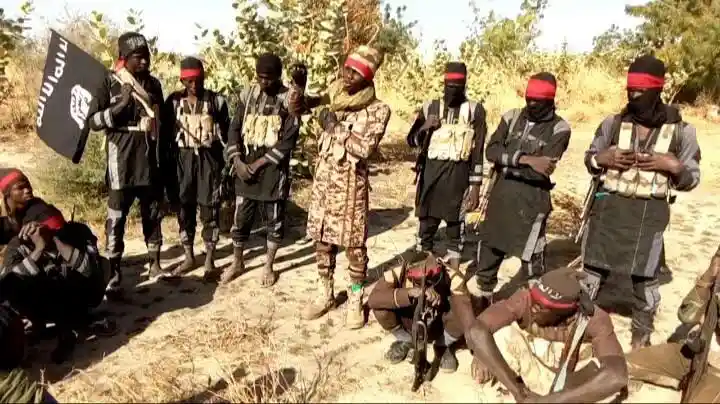Nigeria’s Decade of Crisis: Boko Haram, Bandits and Regional Unrest (2009-2025) – Hundeyin
- Advertisement -
Narrated by Nigerian Investigative Journalist, David Hundeyin
Nigeria has experienced a tumultuous period over the past decade, marked by insurgency, political instability, and economic decline. The timeline of events highlights the escalation of conflicts and emerging threats that have gradually destabilized different regions of the country. Understanding this timeline is essential to grasp the scope and interconnected nature of Nigeria’s security and socio-political crises.
2009-2011: The Rise of Boko Haram
- Advertisement -
The insurgency that would define much of Nigeria’s security challenges began with the death of Mohammed Yusuf, leader of Boko Haram, in July 2009 while in police custody. Initially seen as a local, disorganized group in the Northeast, Boko Haram began to evolve into a more formidable force.
By August 26, 2011, the insurgency escalated with the bombing of the UN building in Abuja, killing 21 people. This attack marked Boko Haram’s transformation into a well-funded terror group capable of large-scale operations.
2011-2014: Intensification of Insurgency and Territorial Expansion
- Advertisement -
In December 2011, Boko Haram conducted coordinated attacks on churches during Christmas services in Abuja, Jos, Gadaka, and Damaturu, resulting in dozens of casualties. This attack became Nigeria’s deadliest terror incident to date.
Also Read : Obasa Drags Lagos Assembly, Meranda to Court Over Removal: Seeks Urgent Hearing
By 2013, Boko Haram had expanded its operations to include holding territory, openly challenging the Nigerian military with propaganda videos. The crisis deepened in 2014 with the Chibok school kidnapping, where over 200 girls were abducted. Military deployments increased as Borno, Yobe, and Adamawa became full-fledged war zones.
- Advertisement -
2015-2017: New Conflicts Emerge and Regional Unrest Spreads
The 2015 regime change ushered in a new government, but insurgency spread beyond the Northeast. In 2016, the Middle Belt came under sustained attacks by organized militias armed with advanced weaponry, including air support and anti-aircraft guns. The Nigerian military was deployed to this region as well.
That same year, Nnamdi Kanu, leader of the Indigenous People of Biafra (IPOB), gained prominence. Initially running a small YouTube channel, Kanu expanded his operations with advanced broadcast technology. His arrest in 2017 led to violent protests and a military crackdown in the Southeast, further destabilizing the region.
2018-2022: Banditry and Terrorism Expand to New Regions
By 2021, the Northwest experienced intensified attacks from so-called “bandits.” These groups, equipped with advanced military-grade weaponry, targeted rural communities while sparing illegal mining sites. The military was deployed to combat the violence, making it the fifth region in Nigeria with active military presence.
- Advertisement -
The Southwest, previously a stable region, experienced its first major terror attack on June 5, 2022, when St. Francis Catholic Church in Owo, Ondo State, was attacked by ISWAP (Islamic State in West Africa Province), killing over 40 people.
2023-2024: Political and Economic Decline
The 2023 presidential election saw heightened ethnic tensions and violence, particularly in the Southwest. The election was marred by allegations of irregularities, and the winner was declared with just 31% of the vote—one of the most divisive outcomes in Nigeria’s history.
In 2024, Nigeria’s economy contracted to just one-third of its 2015 size. Inflation surged due to the wholesale application of IMF recommendations, leading to widespread social unrest. The economic decline exacerbated tensions, further destabilizing regions that were already grappling with insurgency and violence.
2025: Nigeria at a Crossroads
By 2025, nearly every region in Nigeria had experienced some form of insurgency, violence, or social unrest. The Southwest, once the most stable region, is now facing significant security challenges.
The Bigger Picture: A Pattern of Destabilization?
While each event may appear isolated, a closer examination reveals a pattern of interconnected crises. The rise of Boko Haram, the spread of banditry, the emergence of separatist movements, and economic mismanagement have collectively pushed Nigeria to the brink of instability.
Observers suggest that understanding these events as part of a larger timeline is crucial to crafting effective solutions. Policymakers must address the root causes of these crises—ranging from economic inequality to political exclusion—to restore stability and national unity.
Final Thoughts
Nigeria’s security and political challenges are not insurmountable, but they require coordinated action, transparency, and accountability. As the nation navigates this turbulent period, it is essential for citizens and leaders alike to remain informed and engaged.

Who is David Hundeyin?
David Hundeyin is a Nigerian journalist and author known for his investigative reporting. He is the founder of West Africa Weekly, a Substack newsletter.
Hundeyin’s work often focuses on issues of corruption, human rights, and political accountability in Nigeria. His reporting has been recognized with awards, including the People Journalism Prize for Africa.
Some of his notable investigations include reports on Globacom, a telecommunications company, and allegations of misconduct in the BBC’s West Africa operations.
Hundeyin has also faced criticism and legal challenges related to his reporting.
Stay tuned for more updates on Nigeria’s security and political landscape. Bookmark this page for future developments and in-depth analyses.
- Advertisement -


